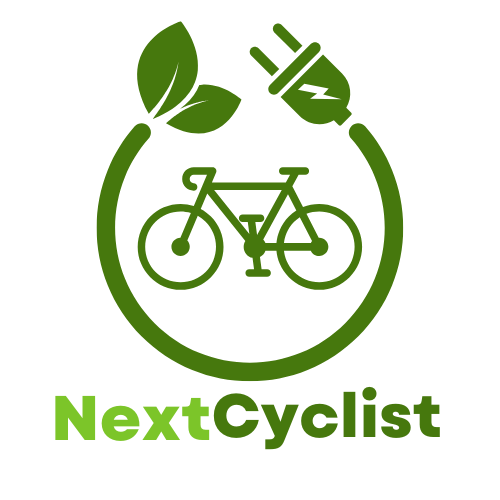500W offers basic power for smaller projects, while 1000W provides higher power for larger tasks. Choose 500W for energy efficiency and 1000W for heavy-duty performance.
Introduction
Choosing the right wattage for your ebike is crucial for performance, but it can feel a bit overwhelming. 500W or 1000W—which one should you go for? This decision impacts everything from speed to range, and it can seriously affect your ride experience. If you’re not careful, you might end up with less power than you need, leaving you struggling on those steep hills or long rides.
So, what’s the real difference? In this article, we’ll break down the pros and cons of both options. We’ll look at how each wattage level influences your electric bike‘s performance and what that means for you as a rider. Whether you’re a weekend warrior or commuting to work, knowing this can make all the difference.
By the end of this, you’ll have a clear understanding of what wattage suits your needs best and why choosing wisely matters. Let’s dive into this decision and find out which option will power your rides!
TL;DR
- Choosing wattage (500W vs. 1000W) affects your e-bike’s performance significantly.
- 500W e-bikes are great for casual riding and city commutes, offering:
- Decent speed (20-25 mph) and battery efficiency.
- Sufficient power for moderate hills and flat terrain.
- 1000W e-bikes provide:
- Powerful acceleration and higher speeds.
- Better handling of steep inclines and rough terrains.
- Ideal for longer rides and carrying heavier loads.
- Overall, choose 500W for efficiency and ease, or 1000W for power and versatility in various riding conditions.
Understanding 500W E-Bike Performance
If you’re looking into 500W e-bike performance, you’re probably considering a reliable option for casual riding and city commuting. The 500W motor strikes a balance between power and efficiency, making it a smart choice for those who don’t need extreme speed but still want a dependable ride.
A 500W e-bike typically offers decent speed and battery efficiency. You can comfortably cruise through urban streets without draining your battery too quickly. This is particularly useful during daily commutes, ensuring you arrive at your destination without worrying about recharging too often.
Moreover, this motor power is sufficient for moderate hills and short distances. If you’re riding on relatively flat terrain or tackling minor inclines, a 500W motor will handle it smoothly. As an example, if you live in a city with slight slopes, you’ll find that the 500W e-bike can keep up with the demands, making your journey hassle-free.
Here are some specific advantages of choosing a 500W e-bike:
- Ideal for casual riders and city commuting: Perfect for short trips to work or errands around town without feeling too fatigued.
- Offers decent speed and battery efficiency: Typically reaches speeds of 20-25 mph while optimizing battery life for longer rides.
- Sufficient power for moderate hills and short distances: Great for those who need an extra boost but don’t plan on tackling steep mountain ranges.
In summary, a 500W e-bike is a practical option for many riders. If you want to delve deeper into maintenance or need guidance on keeping your e-bike in top shape, check out our complete guide to e-bike maintenance and e-bike tire pressure calculator. These resources will help you maximize your e-bike experience!
Benefits of 1000W E-Bikes
When considering the power of an e-bike, opting for a 1000W model offers several distinct advantages. This extra wattage not only enhances your riding experience but also handles various challenges you might face on your journey.
Provides powerful acceleration and higher speeds.
One of the most significant benefits of a 1000W e-bike is its ability to deliver powerful acceleration. This means you can take off from stops faster and reach higher speeds with ease. If you’re commuting or trying to keep up with a group of riders, the extra power helps ensure you won’t lag behind.
Handles steep inclines and rough terrains easily.
A 1000W e-bike is a game-changer when tackling steep hills or rough terrains. The additional power allows you to conquer those challenging inclines without straining the motor or yourself. This can be especially helpful if your routes often include varying elevations or if you like to explore off-road paths.
Ideal for longer rides and heavier loads.
If you plan on taking longer rides or carrying heavier loads—like groceries, camping gear, or even a passenger—a 1000W e-bike is a reliable choice. It offers the battery efficiency and power needed to sustain longer distances without sacrificing performance.
Overall, choosing a 1000W e-bike means investing in versatility and capability for your riding needs.
| Feature | 500W E-Bike | 1000W E-Bike |
|---|---|---|
| Acceleration | Moderate | Powerful |
| Incline Handling | Good | Excellent |
| Load Capacity | Standard | High |
| Ideal for Long Rides | Moderate distance | Extensive distance |
With these benefits in mind, you can see how a 1000W e-bike could fit perfectly into your lifestyle, offering not just speed but also adaptability for a wide range of activities.
To sum it up, choosing the right ebike wattage really boils down to your riding style and needs. A 500W ebike is perfect for casual commutes and moderate hills, giving you a great balance of power and efficiency. On the flip side, if you’re after serious acceleration and the ability to tackle steep inclines with ease, a 1000W ebike could be your best bet.
So, what are you waiting for? Dive deeper into the world of ebikes! If you’re ready to make an informed decision or need tips on maintenance, check out our full guide on ebike upkeep. Your perfect ride awaits — let’s get you rolling! Subscribe for more DIY tips, and stay in the loop!

